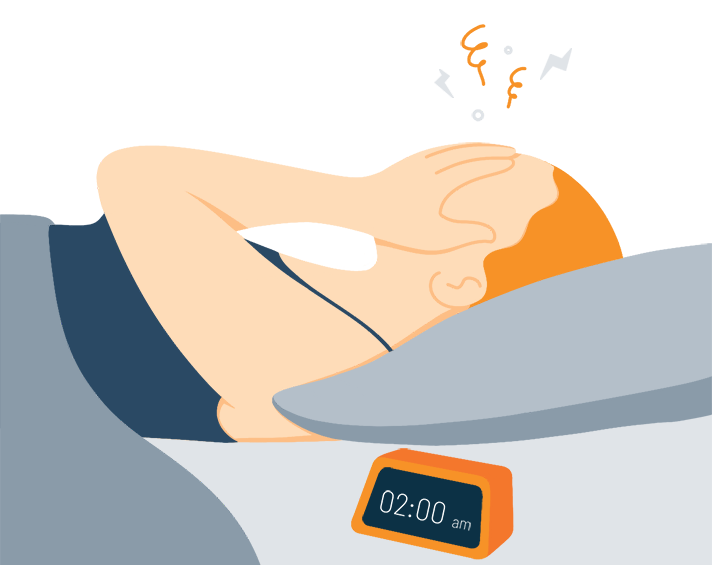Sleeping deprivation refers to a lack of sleep or reduced quality of sleep. People may experience sleep deprivation due to various reasons such as work schedules, medical conditions, or lifestyle choices. Despite its prevalence, the effects of sleeping deprivation can be far-reaching and have a significant impact on one’s physical and mental health.
One of the most immediate effects of sleep deprivation is decreased cognitive functioning. People who are sleep deprived may experience difficulties with memory, attention, and concentration. This can make it difficult for them to perform tasks that require focus and mental agility, such as driving, working, or studying. This can also affect one’s mood and increase feelings of irritability, anxiety, and depression.
In the long-term, sleep deprivation has been linked to several serious health problems. For example, people who consistently get less sleep are at an increased risk of developing cardiovascular diseases, obesity, type 2 diabetes, and other chronic illnesses. These health problems can be linked to the fact that sleep deprivation can disrupt hormones that regulate appetite and metabolism.
Sleep deprivation also impacts the immune system. Research has shown that people who are sleep deprived are more likely to get sick and take longer to recover from illness. This is because sleep helps the body produce cytokines, which are substances that fight off infection. Without enough sleep, the body is unable to produce these cytokines and becomes more vulnerable to illness.
In addition to physical health problems, sleep deprivation can also have serious consequences for mental health. People who are sleep deprived are more likely to experience anxiety and depression, and the symptoms of these conditions may be more severe if they are sleep deprived. Furthermore, sleep deprivation has been linked to an increased risk of developing Alzheimer’s disease and other forms of dementia.
Another significant impact of sleep deprivation is increased stress levels. People who are sleep deprived are more likely to feel stressed, anxious, and irritable. This can lead to an increase in the levels of the stress hormone cortisol, which can have a number of negative effects on the body, including an increased risk of heart disease and other health problems.
Finally, sleep deprivation can also affect relationships and personal life. People who are sleep deprived may have trouble connecting with others and building meaningful relationships. They may also find it difficult to manage their emotions and may become more easily frustrated or angry.
In conclusion, sleep deprivation has far-reaching consequences that can affect physical and mental health, relationships, and personal life. Therefore, it is important for people to prioritize sleep and make sure that they get enough quality sleep each night. This can be achieved through a variety of methods, such as sticking to a consistent sleep schedule, creating a relaxing sleep environment, and avoiding caffeine and other stimulants before bedtime.


